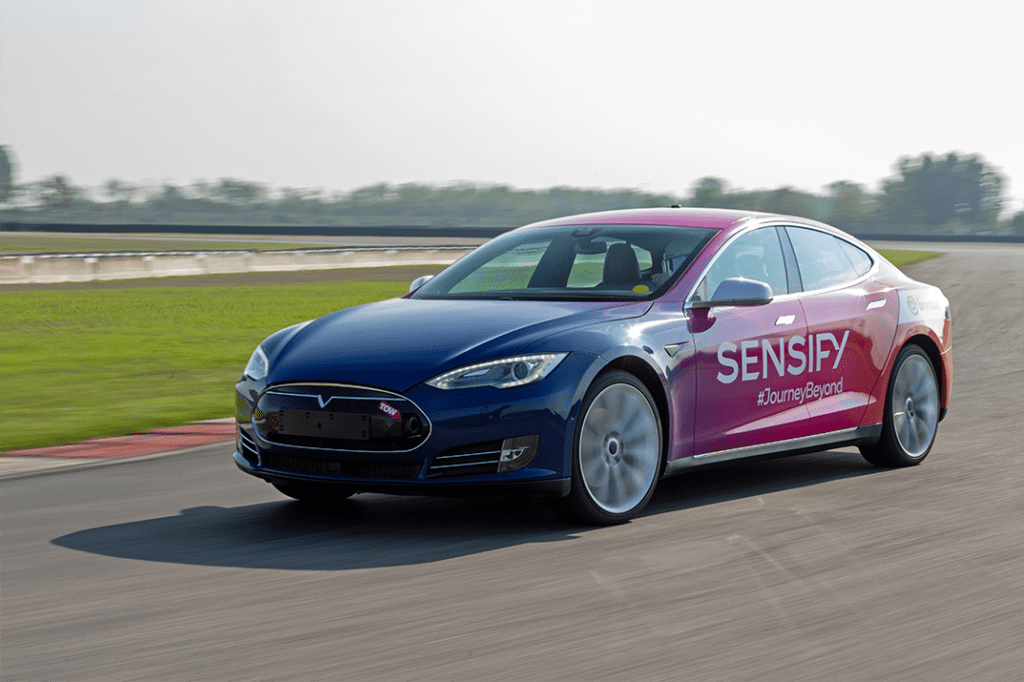Are car subscriptions the way forward?
25 November 2021

Autovista24 journalist Rebeka Shaid looks at the rising number of subscription models in the automotive industry. Are they likely to change the way consumers think about vehicle ownership?
Spotify, Netflix, HelloFresh – all these companies are known for offering convenient subscription services to their customers. The products may differ, but the business model is the same, promising consumers flexibility first and foremost.
Charging users a recurring fee to access a certain product or service, subscriptions have become a dynamic tool for growth and customer acquisition. It is a trend that is here to stay – and shoppers these days cannot only subscribe to meal-kits or entertainment services but also to cars. The question is, how does a car subscription model compare to leasing or ownership of a vehicle, and which provides better value?
The new way to ‘own’ a car
There might be other short-term mobility offers out there, including car-sharing that provide maximum flexibility, but the market has seen a gap when it comes to mid-term flexible mobility solutions – and this is where car subscriptions come into play. Car subscription providers often bill the service as the new way to own a car. How does driving a convertible in the summer and roaming around in an SUV in the winter sound? To some consumers, it is a dream come true.
Car subscriptions mainly appeal to drivers looking for little commitment. All-inclusive car subscriptions are usually what is on offer; covering insurance, excess wear protection, road assistance, and maintenance while also offering a specific mileage allowance. In certain countries, such as Germany, an an all-inclusive car subscription also includes vehicle tax, with drivers only having to pay for fuel or EV charging, depending on the vehicle type.
Costs vary, but consumers can expect a one-off fee on top of the monthly subscription rate that can start at around €200 and exceed the €700 mark. As an alternative to owning and leasing, one of the main benefits of the car subscription model is lower obligation. Drivers are not tied to one car for years and do not have to spend a large amount of money or take on debt when opting for a vehicle.
In Europe, manufacturers have joined dealers, startups, as well as rental and leasing companies by pushing into the car subscriptions market, which is poised to grow in the coming years. The Boston Consulting Group (BCG) predicts this sector could reach $30-$40 billion (€26-€34 billion) by 2030 and could account for up to 15% of new-car sales.
While we are still some way away from the car subscriptions model becoming a new normal, ownership patterns are changing. This holds particularly true for younger people and those who are not willing to accept the long-term responsibilities that come with owning a car. One firm that is aware of this trend is Munich-based Sixt – known for its worldwide rental and ride-hailing services. The mobility company saw it as a smart move when it added car subscriptions to its portfolio. Johannes Boeinghoff, senior vice president subscription at Sixt Germany, told Autovista24 that consumers, especially in urban areas, are more interested in using instead of owning these days.
‘Absolute’ transparency and predictability
‘The way people live and consume has changed rapidly in recent years. This also includes changes in mobility behaviour,’ said Boeinghoff. ‘Owning a car is becoming less important. Even people who are still dependent on a car on a daily basis are increasingly preferring an alternative to traditional car ownership by cash purchase, financing or leasing. Something that gives people even more flexibility when their lifestyle changes, and a type of car ownership that makes costs absolutely transparent and predictable.’

Compared to leasing, car subscriptions provide more flexible terms and vehicle choices, which are often not found in lease agreements. Instead of having access to only one car, subscribers can pick from a number of vehicles, swapping cars as they please. Boeinghoff explained leasing and subscribing to a vehicle might seem similar, but only at first glance. There are other key differences.
Car subscription contracts can often be cancelled at much shorter notice – in Sixt’s case on a monthly basis. Cars are also available almost immediately, while leasing customers often end up waiting for several months to get access to a vehicle. Another advantage is that the subscription fee covers most of the costs that come with leasing, or even owning, a vehicle.
‘With leasing, for example, a down payment for the vehicle at a fixed percentage of the manufacturer’s price is often required in order to reduce the amount of the leasing rate per month,’ said Boeinghoff.
‘Registration, vehicle tax, liability and fully comprehensive insurance are to be paid by the lessee, as well as maintenance and possible repairs that are not covered. In addition, there is often an expensive final instalment when the vehicle is returned. With car subscriptions, however, these costs are already included in the monthly price, so that no further unexpected additional costs are to be feared,’ added Boeinghoff.
There are plenty of startups out there disrupting the car subscription market, such as Cluno, which was recently acquired by Cazoo. But carmakers have caught on. Volkswagen (VW) and Volvo are two of the prominent vehicle manufacturers to have discovered subscriptions as an additional sales channel, which can bring in new customers. OEMs are always looking for ways to diversify their offering into new areas of mobility, and car subscriptions promise plenty of market potential.
‘We estimate that around 20% of our sales could come from subscriptions and other short-term mobility offers by 2030,’ said Jörn Roggenbuck, a spokesman at VW Germany, to Autovista24. He added that car subscriptions are part of VW’s strategy to drive a change that sees the company moving away from being ‘a pure vehicle manufacturer to a mobility provider.’
Roggenbuck describes car subscriptions as a flexible blend between leasing and car-sharing that also appeals to customers who want to cut down on waiting times. Given the ongoing chip shortage that has plagued the automotive industry, this is particularly significant as consumers have struggled to get their hands on certain cars. Therefore, subscriptions are ‘especially attractive for many customers in view of the currently longer delivery times for new vehicles,’ said Roggenbuck.
Aside from offering a number of advantages to drivers, manufacturers are also reaping the benefits of car subscriptions. These allow carmakers to digitise their sales activities and add to a portfolio of new business models. Customers in Germany can, for instance, subscribe to VW’s best-selling battery-electric vehicles, the ID.3 and ID.4 models, with monthly rates starting at €499. This BEV-based subscription model is one of the largest in VW’s home market in Germany, the company said.
Flexibility – at a cost
‘The car subscription is available with a minimum term of three or six months, after which it can be terminated flexibly by customers at any time,’ added Roggenbuck. ‘Everything except electricity is included in the contract. As a start-up offer, the customer can have the vehicle delivered 14 days in advance to the desired location and have it picked up again.’
This sounds promising, especially for leaseholders who value the ability to get a new car relatively often but would prefer to not worry about anything that goes beyond an all-in fee. So how do costs compare? Roggenbuck pointed out that the all-inclusive car subscription package can be more expensive, but one needs to consider what is included in the monthly rate when juxtaposing leasing and subscription-based business models.
‘Compared to traditional leasing rates, the prices of the subscription model include additional services for the customer such as maintenance and wear and tear, inspections, tires, taxes and registration,’ he said. ‘In addition, a subscription offers great flexibility. Therefore, the prices for subscription models are above traditional leasing rates.’
Care by Volvo
Geely-owned Volvo was one of the first OEMs to pioneer car subscriptions in a pilot project before rolling out the service in several countries. Olaf Meidt, part of Volvo’s public relations and events team in Germany, told Autovista24 the company had learned a lot during the pilot phase and was able to finetune its offerings by listening to customers’ needs.

The carmaker has since seen a notable increase of interest from consumers and expects to conclude a total of 6,000 car subscription contracts this year. ‘We anticipate vehicle subscriptions to make up 10% and more of our business in Germany in the medium term,’ Meidt said.
He added that consumers appreciate the opportunity to try out premium vehicles and use the car subscription, called ‘Care by Volvo’, for an extended test drive before deciding to buy a vehicle from the manufacturer potentially. This could hold particular appeal to those wanting to try out an electrically-chargeable vehicle (EV) but have little or no experience with these types of cars.
The Swedish carmaker has been able to attract a considerable number of new clients via its subscription model, with Meidt saying 80% of subscribers are first-time customers. He also pointed out that subscribers tend to be younger, calling them ‘the customers of the future.’
Are car subscriptions cheaper than buying a vehicle though? It is not straightforward to compare these two models because the products are quite different. Subscribers will never own the vehicle they drive, although in Volvo’s case consumers have the option to buy the car should they wish to do so. Drivers are also able to shop around for their own insurance, which has a fluctuating impact on the total cost of ownership (TCO).
At first, car subscriptions might seem uncompetitive when compared to buying, but TCO is comparable, as an internal analysis by Autovista24 senior data journalist Neil King has shown. This is especially true when taking into account the absence of a deposit, the inclusion of insurance, charging and servicing. As such, King said, ‘there are no major cost disadvantages.’
While car subscriptions are not a bargain as such, their value lies on the price customers pay for no long-term financial commitment, being able to switch cars easily, and the general sense of flexibility. With patterns of ownership changing, car subscriptions model will indeed shape the future of mobility.



